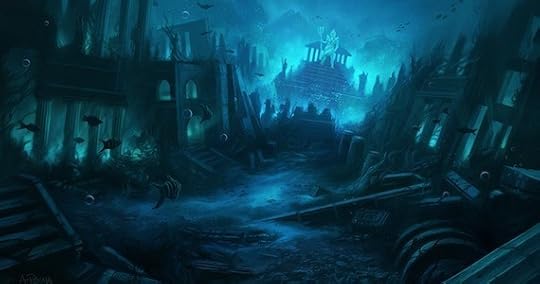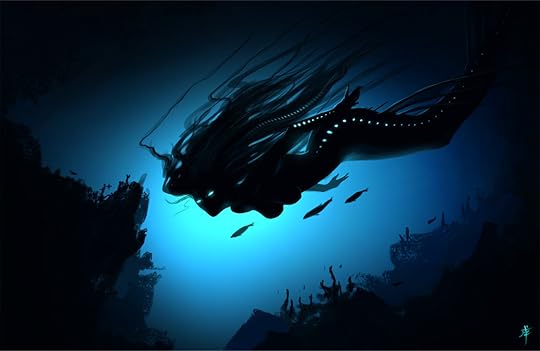Brian Burt's Blog: Work in Progress - Posts Tagged "writing"
Tribute to the King
Some books have changed me fundamentally over the years. So have some writers. Stephen King is one of them: he's ridiculously prolific, a great storyteller, and has an amazing gift for crafting characters so realistic, so recognizable and compelling that you believe the unbelievable situations into which they are thrust. He makes you care about the characters, deeply, and agonize over their fates as they face supernatural forces that would paralyze a Navy SEAL.
For those who haven't experienced it, The Stand is a must-read. It's one of my all-time favorites, a thousand-page epic that ends too soon, the ultimate battle between good and evil. The soldiers on both sides are mostly just people: good people with flaws, not-really-evil people with fatal flaws that lead them down a dark path. King makes you cheer for the good guys, but he makes you feel sympathy for the bad guys, too. As a reader who also writes, I find that to be an awesome achievement, one to which I aspire every time I sit down at the computer and try to tell a story.
So Stephen King has educated me steadily over the years as I've gobbled up as many of his novels as I could. But he also educated me more explicitly when he released his memoir, On Writing. For any fiction writer or reader who appreciates insight into the craft, this is a wonderful book. Its tone is personal, engaging, sometimes intimate and often enlightening; full of anecdotes that make you feel like you're sitting in your living room, drinking a cold beer with a friend. But it also offers down-to-earth, common-sense advice about how to be a writer, and how to keep being a writer even when that blank page / screen intimidates the heck out of you.
The memoir also deals with King's nearly fatal accident in 1999, when he was walking along the side of a country road, reading, and was struck by a passing van. I remember hearing that news and being devastated, as countless fans around the world were. King describes the experience - before, during, and after - in graphic detail, and proves once again that he's a brilliant storyteller. Personal confession: my wife regularly walks around the block in our sleepy neighborhood, where there's almost no traffic and a 20-MPH speed limit, reading her book. She tells me it's utterly safe, that I'm an overprotective goof to be worried... but I flash back to the end of On Writing and have to suppress the urge to skulk around behind her, keeping watch for weaving vans.
Great stories stay with you, as do great characters. Turns out that Stephen King is a great character, too!
For those who haven't experienced it, The Stand is a must-read. It's one of my all-time favorites, a thousand-page epic that ends too soon, the ultimate battle between good and evil. The soldiers on both sides are mostly just people: good people with flaws, not-really-evil people with fatal flaws that lead them down a dark path. King makes you cheer for the good guys, but he makes you feel sympathy for the bad guys, too. As a reader who also writes, I find that to be an awesome achievement, one to which I aspire every time I sit down at the computer and try to tell a story.
So Stephen King has educated me steadily over the years as I've gobbled up as many of his novels as I could. But he also educated me more explicitly when he released his memoir, On Writing. For any fiction writer or reader who appreciates insight into the craft, this is a wonderful book. Its tone is personal, engaging, sometimes intimate and often enlightening; full of anecdotes that make you feel like you're sitting in your living room, drinking a cold beer with a friend. But it also offers down-to-earth, common-sense advice about how to be a writer, and how to keep being a writer even when that blank page / screen intimidates the heck out of you.
The memoir also deals with King's nearly fatal accident in 1999, when he was walking along the side of a country road, reading, and was struck by a passing van. I remember hearing that news and being devastated, as countless fans around the world were. King describes the experience - before, during, and after - in graphic detail, and proves once again that he's a brilliant storyteller. Personal confession: my wife regularly walks around the block in our sleepy neighborhood, where there's almost no traffic and a 20-MPH speed limit, reading her book. She tells me it's utterly safe, that I'm an overprotective goof to be worried... but I flash back to the end of On Writing and have to suppress the urge to skulk around behind her, keeping watch for weaving vans.
Great stories stay with you, as do great characters. Turns out that Stephen King is a great character, too!
#SFWApro
Two-Thirds of a Trilogy!
WOOHOO!!! Just finished the first draft of Aquarius Rising Book 2 - Blood Tide. What a rush! For so long, I felt like I was at the bottom of Mount Everest, starting up in the middle of a blizzard. What a great feeling to reach the summit!
Going to let the new novel percolate for a few weeks, then the revision process starts. (Writing is rewriting, as the gurus say. ;-) Call me crazy, but I actually savor this part: working to polish and refine the "rough draft."
Wish me luck!
Going to let the new novel percolate for a few weeks, then the revision process starts. (Writing is rewriting, as the gurus say. ;-) Call me crazy, but I actually savor this part: working to polish and refine the "rough draft."
Wish me luck!
Published on February 08, 2014 12:29
•
Tags:
first-draft, writing
Right What You Know? No!

I'm currently working on book 3 of an Aquarius Rising trilogy where much of the action takes place in the Earth's oceans. I'm about to embark on a section of the novel set in the deep ocean, a place about which we humans know very little, arguably less than we do about the Moon or Mars. As a landlocked Midwesterner, born and raised, my real-life experiences leave me woefully unqualified to represent this undersea world. According to the tired old adage to "write what you know," I'm poised to dive (at least figuratively) into very dangerous territory.
I'm okay with that. Because I'd wager any of us who write speculative fiction realize that the "write what you know" advice is dead wrong for us, or maybe just completely misinterpreted when taken at face value. I think what's really intended by this is an exhortation to "know what you write"... and that can be a lot more fun, for the writer and the readers!
What do I mean by know what you write? In my case, it means knowing my limitations, understanding where I want to take the reader, and doing the necessary research to fill in the blanks in my knowledge so that I can provide readers with a fictional experience that feels authentic.
This resonates deeply with me, maybe because I face a similar challenge with my day job. I work in information technology — more specifically, cybersecurity these days — and it's an area that evolves so rapidly that nobody can keep pace with every breakthrough, every new technology, every shifting paradigm across the vast continuum it encompasses. In IT, nobody can know it all anymore; I'd wager that even IBM's famed Watson has his blind spots.
So, to this battle-scarred IT warrior at least, the crucial skill is not to know the answers off the top of your head. A skilled info-tech professional needs to know how to do the necessary research, quickly and efficiently, to learn what's needed to move forward and make sound decisions. In most cases, you don't need to be an expert; you have to know enough to get the job done.
In fiction writing, I think the challenge is much the same, especially in the SF genre where the whole point is to extrapolate beyond the known and the familiar, to take readers into realms that don't exist outside of a writer's twisted imagination. Solid research is still essential, of course, to make sure this shared illusion is convincing, that the reader doesn't see the man behind the curtain or strings attached to the levitating ghosts. If the artifice becomes obvious, if the pieces of the imaginary world don't properly align or, worse, openly clash, then the magic dissolves into a failed parlor trick that leaves the audience feeling unsatisfied and ill used.
I don't want to be the magician cowering onstage while the overripe fruits and rancid veggies rain down on him from a grumbling crowd.
Here's the coolest thing about avoiding that painful outcome: doing the research can be an absolute blast. Learning about a remote part of the globe, a bizarre biome, or a cutting-edge scientific theory can energize a writer's creativity. That energy infuses the story, and ultimately the readers absorb enough to (hopefully) get a healthy jolt.
My research into the deep sea has been fascinating. I learned that 60% of our planet lies beneath more than a mile of seawater; almost 80% of Earth's biosphere exists in waters deeper than 1000 meters. This perpetually dark, frigid marine realm has more biodiversity, and more biomass, than the Amazon rainforests, and yet we've put more astronauts in space than aquanauts down into the abyssal depths. We've found ecosystems thriving around hydrothermal vents belching sulfuric acid; brine pools with waters so salty that they don't mix with the surrounding seawater and create lakes on the bottom of the ocean.
Awesome! Here's a place in our backyard about which we know very little... just enough to glean that it's amazing, alien, astonishing. What a perfect place to let an SF writer's imagination run wild!
I can't wait to plumb these depths as I complete the third book in the trilogy. I may not be writing what I know... but I know what I love, and I love to learn. As long as I have a laptop, a web browser, and Google, let the virtual voyages of discovery continue!

#SFWApro
Work in Progress
Random musings from a writer struggling to become an author.
- Brian Burt's profile
- 51 followers




